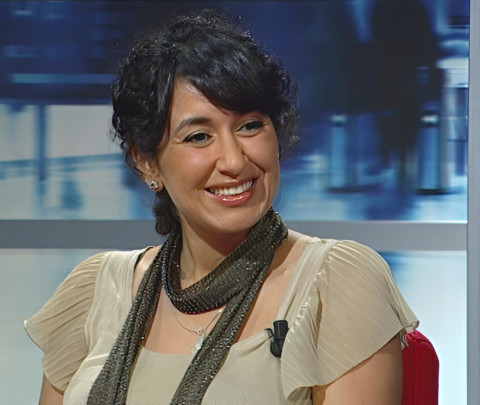Ideas into movement
Boost TNI's work
50 years. Hundreds of social struggles. Countless ideas turned into movement.
Support us as we celebrate our 50th anniversary in 2024.

Miriyam Aouragh is an anthropologist and researches the intersection between politics and digital infrastructures. She is a second-generation Dutch-Moroccan, a grassroots organiser and regular commentator on racism/anti-racism and cyberwar topics. She also collaborates with international networks of critical thinkers.

Miriyam is the co-founder of TITiPI - a trans-practice gathering of activists, artists, engineers and theorists initiated -, and Labor-Tech, - an interdisciplinary and transnational group of experts concerned with technology bringing together scholars, tech workers, union organizers, policy makers, journalists, non-profit researchers, activists, and sits on the council of Brismes, the flagship organisation of Middle East Studies in the UK. At The Institute for Technology in the Public Interest (TITiPI) — together with Seda Gürses, Helen Pritchard, and Femke Snelting — Miriyam Aouragh convenes communities to articulate, activate and re-imagine together what computational technologies in the “public interest” might be when “public interest” is always in-the-making.
TITiPI functions as an infrastructure to establish new ways in which socio-technical practices and technologies might support the public interest. Labor-Tech aims to reframe the conversation about technology and labour, to highlight labour, instead of work, as a foundational concept and thus directing attention to the role of power in the workplace, and political economies that shape workers’ experiences. It also aims to as center the interconnections of the digital and non-digital such that we focus not only the labor of producing technology (i.e., a software coder), and the labor that is done directly through technology (i.e., an office computer), but also the many forms of labor that are affected by technology in seemingly “non-tech” environments.
Miriyam studied the implications of the internet as it was first introduced (“Web 1.0”) in Palestine (University of Amsterdam, 2000-2008) and how this "new" technology coincided with the outbreak of the Second Intifada. Focusing on the particular significance of techno-social evolutions, she subsequently (Oxford Internet Institute, 2009-2011) analysed the political role of digital tools and spaces as the internet evolved ("Web 2.0" marked by blogging and social networking. She set-up a critical research project (Leverhulme Grant 2013-2016) to study the Arab (Counter-)Revolutions (CAMRI-UoW).
Her ethnographies are conducted among grassroots activists in Lebanon, Morocco, Jordan and Palestine. As Professor of Digital Anthropology, Aouragh writes about these themes in her books Palestine Online (IB Tauris 2011) and Mediating the Makhzan (forthcoming 2025). With Hamza Hamouchene she published The Arab Spring a decade on: Revolution, Counter-Revolution and the transformation of a region (TNI, 2022); and with Paula Chakravartty Infrastructures of Empire (Sage 2024). Her academic work has also appeared in edited volumes and peer-reviewed journals. See here for more.
Miriyam has been awarded the Institute of Advanced Studies Urban Fellow [https://nias.knaw.nl/fellow/miriyam-aouragh ], during this appointment she will reflect on 2 decades expertise about Palestinian internet and technology, especially the changing demographic and infrastructural dynamics throughout the past twenty years.